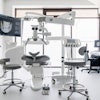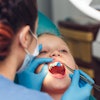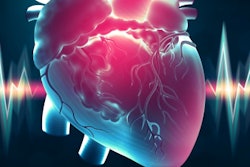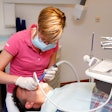
Periodontal disease (PD) appears to be associated with atrial fibrillation (AF), and an irregular heart rate may be the mediator between the serious gum infection and stroke, according to a study published on January 24 in the American Heart Journal.
Those who kept up with routine dental care had lower risks of atrial fibrillation than those who only went to the dentist when they experienced discomfort or needed dental work or who failed to keep a regular appointment schedule, according to the authors.
"We report an independent association between severe PD and AF," wrote the group, led by Dr. Souvik Sen from the neurology department at the University of South Carolina School of Medicine. "Mediation analysis suggested AF mediates the association between PD and cardioembolic stroke."
Up to about 90% of the population worldwide has periodontal disease, and severe periodontitis prevalence is estimated at approximately 10% to 15%. Periodontitis is linked with high systemic inflammatory markers caused by chronic bacteria.
These markers have been associated with atherosclerosis, and evidence has shown that systemic inflammation is linked to higher risks of atrial fibrillation. This led researchers to investigate whether systemic inflammation originating from gum disease may be associated with a higher risk of atrial fibrillation.
In the dental Atherosclerosis Risk in Communities (ARIC) study, 5,958 participants without prior atrial fibrillation underwent full-mouth periodontal measurement exams. In addition, the researchers evaluated 9,666 participants in the ARIC main cohort who had not been diagnosed with atrial fibrillation. Those in this cohort were classified as regular or episodic dental care users. For 17 years, the patients were followed to see if they developed irregular and rapid heart rates.
In the dental cohort, 754 participants were diagnosed with atrial fibrillation. Severe periodontal disease was linked to atrial fibrillation on both univariable (crude hazard ratio [HR], 1.54; 95% confidence interval [CI], 1.26-1.87) and multivariable (adjusted HR, 1.31; 95% CI, 1.06-1.62) analyses. Hazard ratio adjustments included age, race, lifestyle habits, and other conditions such as diabetes, according to the authors.
In the main cohort, 1,558 participants were found to have atrial fibrillation. Those who received routine dental care had a lower risk for atrial fibrillation on univariable (crude HR, 0.82; 95% CI, 0.74-0.90) and multivariable (adjusted HR, 0.88; 95% CI, 0.78-0.99) analyses, compared with episodic users.
In the final analysis, the researchers concluded that regular dental care can modestly reduce the risk of atrial fibrillation by 22%.
Study limitations included the determination of atrial fibrillation via electrocardiograms, hospital discharge diagnosis codes, and death certificates. Sudden atrial fibrillation may have gone undetected in some patients without long-term monitoring, Sen and colleagues noted.
"A randomized clinical trial may also help ascertain if severe PD ... patients may benefit from AF detection and subsequent anticoagulation or antiplatelet therapy as a primary stroke prevention strategy," they wrote.




















